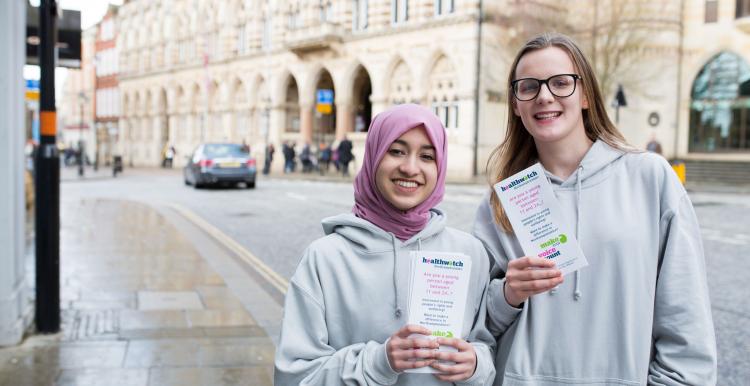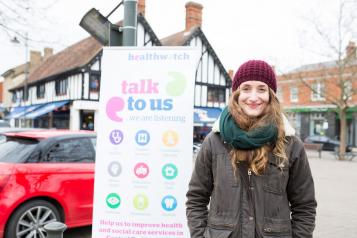What can I expect from young people’s mental health services?

What is CAMHS?
CAMHS stands for Child and Adolescent Mental Health Services. It is a term used for all NHS services that work with children and young people with emotional, behavioural or mental health difficulties.
There are NHS CAMHS services around the UK, and local areas have several different support services available.
Parents, carers and young people can receive direct support through CAMHS.
What can CAMHS help me with?
There are all sorts of concerns young people may need support with.
If what’s bothering you isn’t on this list, please still get in touch with your local NHS if you are worried.
Common reasons people contact CAMHS services:
- sadness, low mood or depression
- feelings of worry or anxiety
- low confidence
- problems with eating or your relationship with food
- anger
- problems sleeping
- hearing voices or seeing things
- thoughts about wanting to hurt yourself
- difficult feelings after a traumatic event
If you're in a crisis and need urgent help:
If you don't feel you can keep yourself safe right now, seek immediate help by visiting your nearest Accident & Emergency (A&E) department or call 999.
If you need urgent support but don't want to go to A&E:
-
call Samaritans on freephone 116 123 – they're always open and are there to listen
-
contact your GP surgery and ask for an emergency appointment
-
contact NHS 111
- visit Mind's website for more information
How can I get help from CAMHS?
Getting help is different depending on where you live. Most services have their own website where you can look up how to get access to their service.
Find your local CAMHS service by using the NHS search tool. Or if you live in Wales, you can visit your Local Health Board website.
Normally you will need a referral from your doctor, but some services also accept referrals from schools, social workers, and youth offending teams. It's important to tell the person referring you as much as you can so you can get the help you need. If you are old enough, you can refer yourself.
When CAMHS gets your referral, they will contact you and your family, by phone or by sending you a letter, to give you an appointment or ask for more information about what you're experiencing.
There are many services you can go to for help without having to ask for a referral.
For example:
- The NHS has a list of services that provide mental health support for young people.
- Community-based youth information services often have drop-in sessions where you can get advice and professional help.
Will I have to wait for an appointment?
Sometimes if your local service is busy, you might have to wait a while for an appointment. This can be really upsetting and worrying, especially if you feel like things are getting worse.
It might help to:
- speak to your doctor about other support you can try while you wait.
- contact your CAMHS service to ask when you should get an appointment and if there is anything you can do while you wait.
- explore other options for support, like help from charity organisations. See our information below on finding other support services.
What will happen in my first appointment?
In your first appointment, you will meet someone from your CAMHS team. They might ask you questions about:
- how you’ve been feeling
- problems at school or at home
- relationships with your family and friends
- things you enjoy doing
- things you would like help with.
This is so they can understand how you’re feeling and whether their service is right for you. If it is, they will work together with you and your family to decide what kind of support might help.
To find out about the people who might work in your CAMHS team, Young Minds have information about the different professionals you might see and what they do.
What support and treatments do CAMHS offer?
The type of help you will get will depend on the severity of issues you face. Your support plan will be decided by your CAMHS team, but you should be asked about what you would like and what you feel most comfortable with.
Support they recommend could include:
- talking therapies, to explore your feelings. This might be on your own with a therapist or with your family there too.
- medication, to help you cope with how you feel.
- staying in hospital, for treatment and support.
Will they speak to my parents or carers?
Your CAMHS team normally talk to your parents or carers to understand more about you and your family, so they can help you in the best way they can. They might talk to them about what kind of help they could offer you and ask them to come along to appointments.
If you’re worried about your parents or carers coming to appointments with you or finding out what you’ve said, try to let your CAMHS team know and explain why this makes you uncomfortable. You can also ask them how much of what you say in your appointment stays between you and them.
How long will CAMHS support me for?
How long you're supported by CAMHS will be personal to you, but you can ask them for a guide at any time.
If you're offered therapy, you might be given a set number of appointments. After you’ve had these, your CAMHS team will talk to you about how things are going and how you're feeling. This will help you both decide whether you still need their support.
CAMHS may also stop supporting you if you become too old for their service. In most places this is when you turn 18, but it can be earlier or later, depending on the service. For more information read Mind's guide for moving to adult services.
Other services that can provide you with support
Childline
Childline is a free, private and confidential service here to help anyone under 19 in the UK with any issue they’re going through.
You can talk to them about anything, whatever your worry, whenever you need help, anytime day or night.
0800 1111
Shout
Shout is a free, nationwide, text-based, 24/7 service for people experiencing crisis. It’s a place to go if you’re anxious, worried, stressed, or struggling to cope and need help.
Text 85258
The Mix
The Mix is a free, confidential support service for young people under 25. They are here to help you on any challenge you’re facing – from mental health to money, from homelessness to finding a job, from break-ups to drugs.
Other methods are also available including one to one chat and counselling services
Everday, 4pm -11pm - 0808 808 4994
Young Minds
Young Minds is a mental health charity for children and young people. They provide advice and information about mental health conditions and support for both young people and parents and carers.
Text YM to 85258
Parents Helpline, 9.30am - 4pm, Monday to Friday - 0808 802 5544
Mind
Mind is a mental health charity which provides advice and support to empower anyone experiencing a mental health problem. They have a section on their website on CAMHS and can help you find support in your area.
Monday to Friday, 9am - 6pm - 0300 123 3393
Text 86463
NHS
The NHS website has further information on CAMHS, including transitioning from CAMHS to adult services, and other resources.
This advice and information is from NHS England, Young Minds and Mind.


